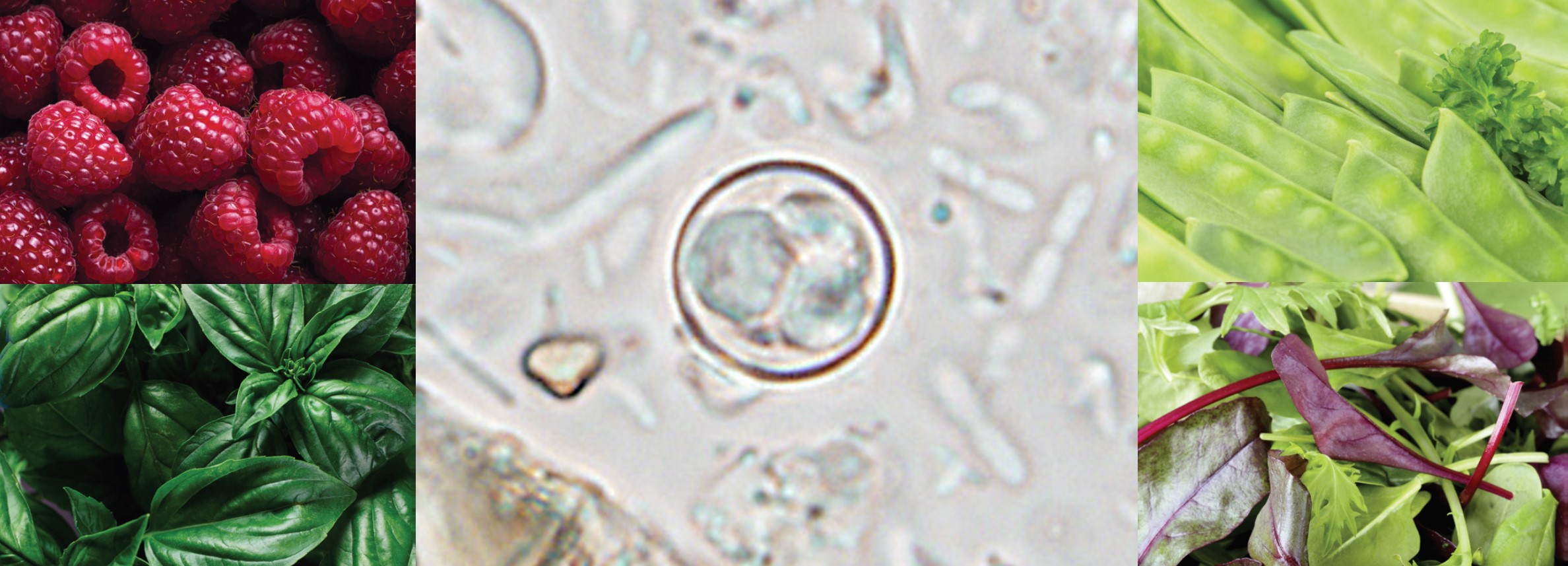The Food and Drug Administration (FDA), Centers for Disease Control and Prevention (CDC), along with state and local partners are currently investigating a multistate outbreak of Cyclospora infections which has been linked to Fresh Express products including iceberg lettuce, red cabbage and/or carrots [1]. The recall for these products spans 31 states (including North Carolina) and the District of Columbia [1]. The recalled products all originated from the Fresh Express production facility locates in Streamwood, Illinois. As of July 8, 2020 the CDC reported 509 cases [1]. Currently the FDA is still conducting a traceback investigation to determine the cause and source of the Cyclospora contamination [1]. In general, Cyclospora is transmitted when infected fecal matter contaminates food or water [2]. In previous outbreaks of Cyclospora in the United States “it is unknown exactly how food and water become infected with Cyclospora” [2].
Cyclospora cause an intestinal illness (i.e., cyclosporiasis) caused by the parasite Cyclospora cayetanensis [3]. In the United States, outbreaks of C. cayetanensis are associated with fresh produce including raspberries, basil, snow peas, and mesclun lettuce. No commercially frozen or canned produce has been implicated [4]. Around the globe, C. cayetanensis is endemic in tropical and subtropical regions. The time between ingestion of C. cayetanensis and the onset of symptoms is about 1-week [3]. Symptoms of cyclosporiasis include watery diarrhea, frequent bowel movements, loss of appetite, weight loss, stomach cramps, bloating, nausea, and fatigue. Flu-like symptoms have also been reported [3]. Without treatment, cyclosporiasis can last between a few days to a month or longer, with relapse possible (i.e., symptoms seem to go away and then return). Treatment of cyclosporiasis includes antibiotics and drinking plenty of fluids to prevent dehydration [3].
How to help prevent Cyclospora infection:
- Wash all fruits and vegetables thoroughly with running water before cutting, cooking, and or consumption [2].
- Scrub firm fruits and vegetables like melons and cucumbers using a clean brush [2].
- Cut away damaged areas of the fruit or vegetable prior to preparing and eating [2].
- Refrigerate cut, peeled, and/or cooked fruits and vegetables as soon as possible, or within 2 hours [2].
References:
- 2020. Outbreak Investigation of Cyclospora: Bagged Salads (June 2020). Retrieved from: https://www.fda.gov/food/outbreaks-foodborne-illness/outbreak-investigation-cyclospora-bagged-salads-june-2020
- 2020. Cyclospora. Retrieved from: https://www.fda.gov/food/foodborne-pathogens/cyclospora
- 2020. Parasites – Cyclosporiasis (Cyclospora Infection). Retrieved from: https://www.cdc.gov/parasites/cyclosporiasis/index.html
- 2014. Cyclosporiasis Factsheet. Retrieved from: https://www.cdc.gov/parasites/cyclosporiasis/resources/pdf/cyclosporiasis_general-public_061214.pdf
Photo Source: CDC [https://www.cdc.gov/parasites/cyclosporiasis/cyclo_feature.html and https://www.cdc.gov/dpdx/cyclosporiasis/index.html (Image Gallery)]
*This article is contributed by Heidi Knecht (DrPH EOH Student).




